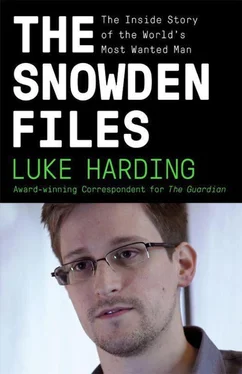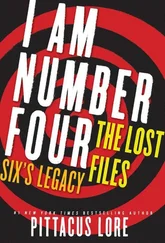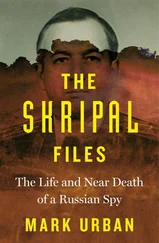Laws also took a dim view of investigative journalism. ‘I don’t really know what is meant by the term “responsible journalist”,’ he mused at one point. ‘It doesn’t make a journalist omniscient in security matters… It’s just rhetoric really.’
The other judges, fellow members of the establishment, had little sympathy with Snowden, or his situation. ‘There must be a quid pro quo about Snowden sitting in Russia. It’s an obvious thought,’ Mr Justice Ouseley chipped in.
‘Why is Russia allowing Snowden to stay? Snowden is in Russia with encrypted stuff. Does it not cross Snowden’s mind that the Russians might want to decrypt it?’ Judge Openshaw said.
It looked an uphill struggle to persuade the judges of the key point behind the case. Greenwald put in a statement saying: ‘The most serious and problematic aspect of the defendants’ response to this claim is their equating of publishing articles based on national security material with acts of terrorism.’
The authorities were having none of this. The Home Office said it had acted in the interests of national security. The authorities had wanted to know ‘where Mr Miranda fitted in the broader Edward Snowden network’. The journalists involved weren’t motivated by public interest but were ‘advancing a political or ideological cause’.
The day after the review finished – with Laws and co retiring for some time to consider their judgement – the action moved back to Westminster, and to a committee room of parliament. The 2013 James Bond movie Skyfall features M – the head of MI6, played by Judi Dench – giving evidence at a public inquiry. A group of MPs from the ISC lob hostile questions at her. (They are fed up because MI6 has lost a hard drive containing the names of undercover agents…)
Dench’s/M’s public grilling gets worse. The film’s bad guy is a renegade MI6 officer, Raoul Silva, played by Javier Bardem with psychopathic glee. Bardem/Silva bursts into the room, dressed as a policeman. He opens fire. Fortunately James Bond (Daniel Craig) arrives to rescue his boss. The ISC’s chairman, Gareth Mallory (the British actor Ralph Fiennes), proves useful in a tight spot. He shoots several bad guys.
The real-life ISC’s first public hearing on 7 November was a more sedate affair. Seated around a horseshoe-shaped table were Sir Malcom Rifkind and nine MPs and peers. There was no Bond villain. Instead, a flunkey in a gold chain opened the door for the committee’s star witnesses. The three heads of MI5, MI6 and GCHQ – Andrew Parker, Sir John Sawers and Sir Iain Lobban – sat in a row. Behind them were other officials from Whitehall’s twilight world (and a huge bodyguard, no doubt armed with an exploding pen).
Previously the ISC’s meetings with UK intelligence chiefs had been held in private. This one was televised live – or almost live. There was a two-minute delay on the TV feed in the unlikely event someone blurted out a secret. Opening the 90-minute session, Sir Malcolm hailed the hearing as a ‘significant step forward in the transparency of our intelligence agencies’. He omitted to mention that the chiefs had secretly got the questions in advance. Inevitably journalists went with the same tired intro. The spies were coming out of the shadows!
Anyone who had hoped Lobban and co might shed light on the Snowden revelations was to be disappointed. In broad terms, the service chiefs defended their mission – its legality, appropriateness, targets and methods. For much of the session, it appeared that Snowden didn’t exist. Asked how a ‘junior clerk’ had managed to gain access to GCHQ’s secrets, Parker said British agencies had ‘stringent security arrangements’.
Rifkind inquired: ‘Can we assume that you are having discussions with your American colleagues about the hundreds of thousands of people who appear to have access to your information?’
Parker replied: ‘All three of us are involved in those discussions.’
If anyone had been fired over GCHQ’s debacle we never found out. Nor was there any explanation of how the NSA allowed the biggest leak in the history of western intelligence to take place.
Rifkind asked another question. It was the equivalent of a friendly tennis player lobbing the ball up in the air so his partner could smash it. ‘Why do you think it is necessary to collect information on the majority of the public in order to protect us from the minority of potential evil-doers?’
Lobban replied with his favourite analogy – the haystack. He said: ‘We don’t use our time listening to the telephone calls or reading the emails of the vast majority.’ Instead, GCHQ was engaged in ‘detective work’. It needed access to ‘an enormous haystack’ – the communications on the internet – in ‘order to draw out the needles’. The GCHQ boss offered a defence of his staff. They were, he said, patriotic and motivated by finding terrorists and serious criminals.
‘If they were asked to snoop, I wouldn’t have the workforce. They would leave the building,’ Lobban said.
There would be a gradual but inexorable darkening of GCHQ’s knowledge of its targets, Lobban added. Over the previous five months potential terrorists had chatted on an almost daily basis about how to adapt their methods of communication, he said. (Clearly, though, GCHQ could still listen in on them.)
It was left to Sawers, the real M, to attack the evil-doers of the moment: the global media. In a confident and suave performance, Sawers said the Snowden revelations had been ‘very damaging… They have put our operations at risk. It is clear our adversaries are rubbing their hands with glee. Al-Qaida is lapping it up.’ He offered no details.
Some ISC members did gently press the three chiefs. Lord Butler, the former cabinet secretary, asked if it were credible that legislation passed in 2000 was ‘fit for purpose in the modern world’, given that the agencies’ capabilities had ‘developed so hugely’ in the meantime. Sawers and Lobban said they were prepared to accept changes to their legal framework, but that it was up to politicians to propose them.
Overall, the hearing was cosy.
An American or European visitor would have been struck by what the committee didn’t ask. It barely touched on the substantive issues raised by the Snowden documents, and skated over any serious questioning about mass surveillance, civil liberties and privacy. There were no questions about GCHQ’s reported role in tapping British traffic between Google’s own data servers. There was nothing on the bugging of Chancellor Merkel’s phone, or spying on friendly world leaders. Nothing either on the reliance on corporate telecoms partners who offered help ‘well beyond’ what they were compelled to do.
The previous week Sir Tim Berners-Lee – the man who invented the internet – had described the UK–USA’s secret efforts to weaken internet encryption as ‘appalling and foolish’. Nobody asked about this either.
It was left to Rusbridger to point out the obvious to his critics. Snowden – luckily – had entrusted his files to journalists. They had worked conscientiously (in consultation with governments and agencies), disclosing only a small proportion of what he had leaked. It was the media that had, paradoxically, saved the intelligence agencies from a much greater catastrophe.
If governments, officials and spy chiefs wanted to kick newspapers, that was their prerogative. But they should consider what the next leaker might do in the absence of professional journalist outlets. He or she might just dump everything out on the uncensorable worldwide web. ‘Be careful what you wish for,’ the editor warned.
There was a coda to all this. In early December 2013, the action shifted back to parliament. The home affairs select committee – chaired by a plummy-voiced Labour MP, Keith Vaz – summoned Rusbridger to explain himself. This, in itself, was an odd request: in mature democracies newspaper editors didn’t usually have to account for editorial decision-making before legislators; that was, after all, what freedom of the press meant.
Читать дальше












